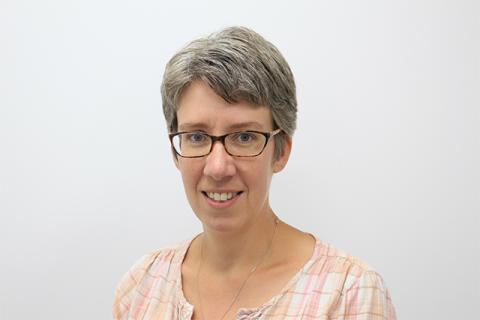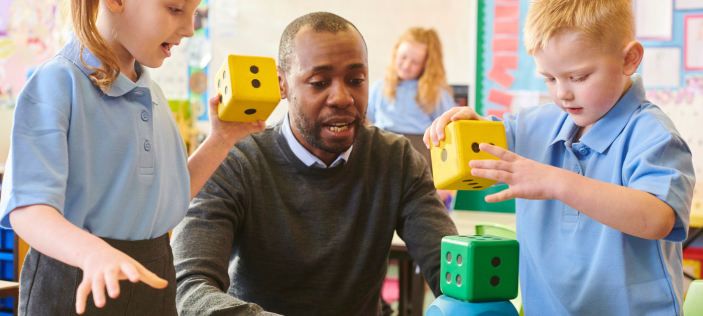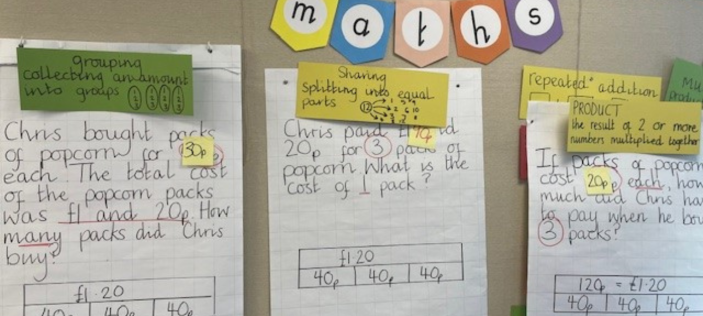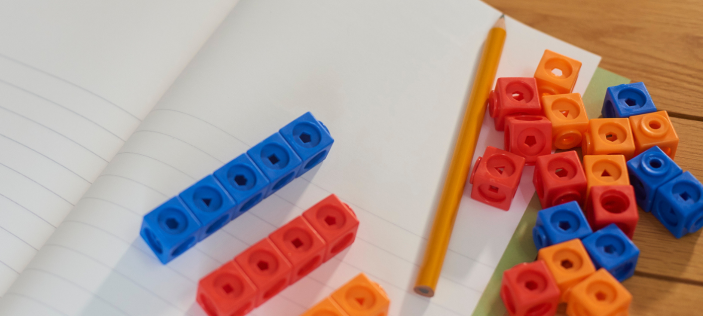
We used to not be able to do a lot of things (in maths) but now, with Mrs George’s help, we have caught up to the class. We don’t need to be taught differently anymore.
Year 4 pupil, Aboyne Lodge Primary School, St Albans
Mental Maths Fluency Intervention – the launch
Back in September 2023, HFL Education launched the new Mental Maths Fluency Intervention (securing facts to 20) with eight schools – this included one secondary school, two Education Support Centres and five primary schools.
To discover more about the intervention design, read my previous blog, Building maths fluency in base facts.
Initial impact
In December 2023, feedback from schools about impact so far was positive:
“I believe the 1:1 tutoring, and the practice sheets and scaffolding, have boosted students’ confidence.”
The Thomas Alleyne Academy (secondary school)
“The teaching guidance had clear steps, so I knew what was coming next. It also included the practice opportunities and games, all in one place. One pupil now has techniques (strategies) they can use and is able to identify which is the best to use. Children are more confident in their ability and were able to access KS2 maths papers, which they could not before the intervention. They also scored 25/30 in a KS1 maths paper; they were unable to access this in the past.”
Central Primary School
At the end of the of the initial launch period, staff at Aboyne Lodge Primary School in St Albans were certain they would be continuing with the programme and had identified further pupils to complete the diagnostic assessment with.
During the spring and summer terms, I received occasional updates from the school about the impact and success of the programme so in July, I visited the school to have a chat with Joanne George (SEN teaching assistant), Rachel Lockwood (Year 4 teacher) and a couple of their pupils to find out more.
How the Mental Maths Fluency Intervention worked for Aboyne Lodge Primary School
So far, nine pupils from Year 3 to Year 6 have accessed the programme. However, more have completed the diagnostic assessment.
Rachel and Joanne shared that the initial assessment has been useful to:
- identify starting points for children they recognised as having significant gaps,
- pinpoint specific, less-secure areas for children struggling to keep up with age-related expectations or whose progress had slowed.
Closing specific gaps
Conducting these progressively designed diagnostic assessments has identified small but significant gaps in some pupils’ base fact knowledge that was starting to have a ripple effect on other learning. These pupils received some ‘gap filling’ sessions, either with their teacher or teaching assistant, rather than the full programme.

Grouping children for a series of intervention sessions
For pupils identified as having more significant gaps, they took part in the intervention. To implement the programme, the school identified pupils to take part in 1:1 or 1:2 sessions with Joanne once a week.
Where similar gaps were identified between pupils, teaching took place in pairs.
After each session with Joanne, pupils’ personalised intervention plans were updated with information for the class teacher, and independent tasks provided for the pupils to complete daily.

Strategies to build pupil independence
Facilitating the daily independent work has been a challenge and getting pupils (and their class teachers) into a routine of completing it took time. In the Year 4 classroom, time was set aside, either first thing in the morning or 10 minutes before home time, to complete the tasks.
The Year 4 pupils told me they liked taking responsibility for completing the tasks (and enjoyed reminding their teachers that they needed to do them!) They reflected that they felt the tasks were not too difficult for the brain to work out but not too easy either. They liked completing them on their own, but they sometimes helped one another.
Top tip from Joanne:
Get the children into the habit of leaving their folders on their desks just before home time to remind them to do the independent tasks first thing in the morning. This way, it’s there and waiting for them as they arrive at school.
Teacher guides and practice sheets
For Aboyne Lodge, the teacher guides and practice sheets have been the most used resources so far.


Fluency slides
The fluency slides have been dipped into within intervention sessions and both Joanne and Rachel feel that the next step is to integrate some of the resources into whole class maths lessons.
The school uses White Rose resources to support their maths curriculum and follows the Mastering Number programme. Multiple assessments have shown that number magnitude (the relative size of numbers) and understanding where numbers sit on a number line, is a persistent common gap.
Integrating rehearsal of this concept into fluency sessions using the provided resources from the intervention programme has been identified as a possible next step and would be a manageable way to make greater links between the intervention and the classroom.

Impact of the Mental Maths Fluency Intervention so far
Both the children and the Year 4 teacher felt that the programme had had a positive impact.
Rachel Lockwood, the Year 4 teacher, felt that progress in all aspects of pupils’ maths learning was evident with the pupils accessing the programme ‘leapfrogging’ some others in the class.
When asked why she felt it had been so successful, she reflected that a big part of it was due to the increased confidence and self-belief of the pupils.
She felt this stemmed from both securing base fact strategies and from them repeatedly feeling successful when working independently.
Joanne George (SEN teaching assistant) felt that the programme was:
“Something that you can pick up and go with, but with the freedom to make tweaks when needed.”
Finally, one of the Year 4 pupils told me:
“We used to not be able to do a lot of things (in maths) but now with Mrs George’s help, we have caught up to the class. We don’t need to be taught differently anymore.”



